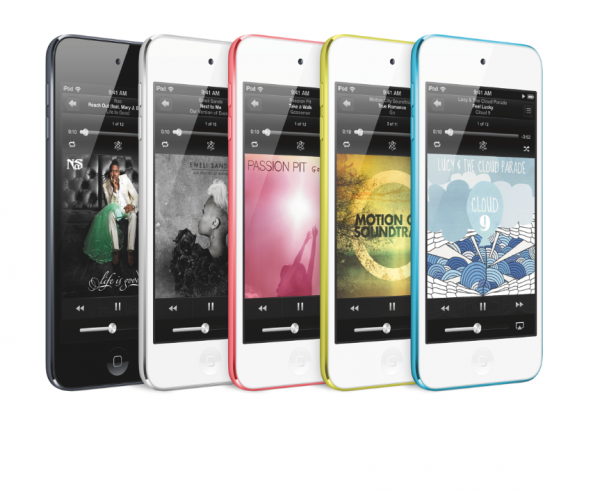While the Apple Inc. (NASDAQ:AAPL) iWatch remains a rumor, albeit a very well-covered rumor, I wonder if the release of this device is a necessary condition for the ultimate release of a cheap iPhone that would allow the company to compete with Google Inc. (NASDAQ:GOOG)’s Android and even Nokia Corporation (ADR) (NYSE:NOK)’s Windows Phones at the low-cost end of the spectrum. A critical reason that Android has been able to command such a huge market share has been that in emerging markets where premium phones are unsubsidized and too expensive for most users, Android has options and Apple does not.

If you’re wondering what this could possibly have to do with a rumored but nonexistent Apple Inc. (NASDAQ:AAPL) product, then I would ask you to consider the history of iDevices. Before I go any further, I’ll also say as explicitly as possible that what follows is pure speculation, a theory, an interesting alternative view to consider. Nothing more. As long as the iPod was the leading mp3 player on the market, it also remained one of the most expensive. It was not until the iPhone came along and the iPod stopped being Apple’s flagship device that iPods in the more modest price range came along.
What about the iPad?
Certainly, the iPad has had no impact on the iPhone’s price level or its premium status. There are, I think, three reasons for this. First, the devices are largely billed as working together. This is a central premise of the entire Apple Inc. (NASDAQ:AAPL) ecosystem approach. With the introduction of iCloud — which replaced the MobileMe service — it became even easier to share content between the two devices. Second, the iPad was introduced long before the iPhone market was even close to mature or saturated. The iPhone had a degree of overlap with the iPod, but there are different paradigms at work.
And, third, the iPad is not a replacement for a smartphone. As long as iPads do not make calls, they are unlikely to displace your iPhone. (Let’s leave the whole phablet discussion for another day.) Apple Inc. (NASDAQ:AAPL) wants to be sure that you want and need both devices.
The year of the watch wars?
The blogosphere is buzzing once again with rumors, rumors, and more rumors. A recent piece from CNET reports that Samsung is well into development of its own smartwatch to compete with the rumored product from Apple Inc. (NASDAQ:AAPL). In case you’re wondering what this market might look like, a recent estimate by Toni Sacconaghi, an analyst at Sandford C. Bernstein, finds that if the device retails for $250 and only 5% to 8% of current iPhone users buy one, that would translate into $3.4 billion to $5.7 billion in revenues. Not the type of numbers Samsung is anxious to concede without a fight.
The symbolic importance of the iWatch is even greater. Sacconaghi explains: “The successful introduction of the device could illustrate that innovation remains high at Apple and underscore the option value of owning Apple as a platform company – i.e., having a large and loyal iOS installed base that Apple can sell additional products and services into.” Furthermore, whether the smartphone market is truly saturated or not, sales are definitely slowing sufficiently that other avenues are looking more and more attractive. This may be one of the reasons that Samsung is jumping back into a space it has dipped its toe into twice before without success.
But a cheap iPhone?
If you have been following the smartphone market at all, you likely know that Samsung’s participation at the low end of the cost spectrum has allowed it to surpass Nokia Corporation (ADR) (NYSE:NOK) as the volume leader in phone sales globally. Where Android controls an estimated 68% of the global smartphone market share, Samsung accounts for 40% of Android sales. In order to compete, Nokia has launched aggressive emerging markets strategies, particularly in both China and Africa. The emerging markets represent the largest smartphone growth segment and missing out in that area is costing Apple Inc. (NASDAQ:AAPL).
Furthermore, in seemingly unrelated news, Apple recently released a new version of Apple TV that contains a less expensive single-core A5 chip. This chip would be especially well suited for a low-end smartphone that would allow it to get into the emerging markets fight. The fear has been that Apple would tarnish its premium brand image, but that is where new technology comes into play.
I bet that if Apple Inc. (NASDAQ:AAPL) launches the iWatch and quickly reestablishes itself as a technology leader, it can again lead by example to demonstrate that the smartphone business is no longer the cutting edge. Once this is the case, the company will be free to compete across the price spectrum, then rely on the watch product segment for cache and premium-brand bragging rights. Without question, this speculation is built on conjecture, but it has the feel of the Apple way.
The article Does Apple’s iWatch Signal a Cheap iPhone? originally appeared on Fool.com.
Fool contributor Doug Ehrman has no position in any stocks mentioned. The Motley Fool recommends and owns shares of Apple and Google.
Copyright © 1995 – 2013 The Motley Fool, LLC. All rights reserved. The Motley Fool has a disclosure policy.

